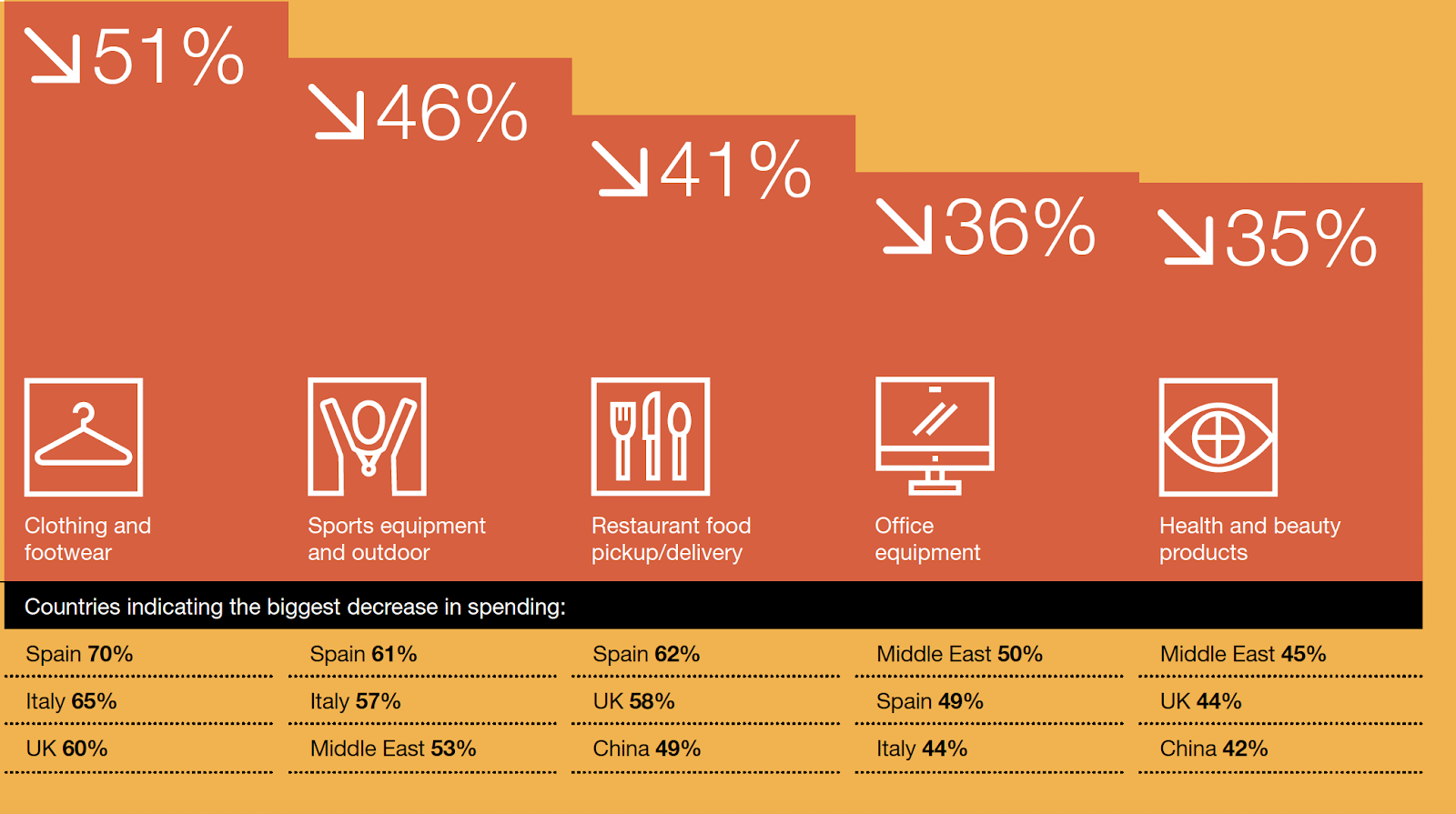
In China, all economic activities have gradually returned to their pre-epidemic vitality. Masks everywhere seem to be one of the few remnants of the epidemic, reminding people that although life has returned to normal, the struggle against the Covid-19 virus is still ongoing.
Globally, the fight against the neo-crown epidemic is not promising in the near future. According to the New York Times on October 30, the United States experienced 500,000 new cases in the previous week. Several European countries such as Greece, Austria, France, Germany, Belgium, and Ireland have already tightened their initiatives regarding the pandemic to varying degrees, including the closure of social venues.
There is no doubt that the impact of the covid epidemic on business is bound to be huge. Many offline stores have not survived the winter of the epidemic and are retreating in disgrace. At the same time, the epidemic is quietly changing consumer behavior, which users may retain in the post-epidemic era, affecting the future business landscape. According to PwC's 2020 user survey, the Covid-19 epidemic is changing consumer behavior in the following four ways.
1. Users will be more conservative in their consumption behavior.
Before the epidemic hit, 46% of consumers were confident they would spend more in the new year. But in the wake of the epidemic, 40 percent of consumers said their income would be reduced due to job loss or layoffs. The number of people who expect they will spend less has increased nearly twice as much. This means that consumers will be more sensitive to the price and value for money of goods.
(source: PWC)

In what ways will users reduce their expenses? According to the report, 51% of users reduced their spending on clothing and footwear, 46% on outdoor sports equipment, 41% on restaurants and takeaways, 36% on office tools, 35% and health and beauty products.
Before the epidemic, people typically spent money on travel, food, arts and cultural events, personal styling, fitness and wellness, nightlife and entertainment, and sporting events. But after the epidemic, consumers spent most of their savings on groceries, entertainment and furniture purchases. Spending on all other consumer goods categories has declined, with the exception of entertainment and media spending.
2. consumers are increasingly interested in health and online
Consumer behavior is shifting from offline to online: 49% of consumers are visiting stores less often as less social activity reduces spending, 50% of consumers are using online social platforms more frequently, and 56% of consumers are watching more TV.
Also, because of this epidemic, consumers will become more conscious of their health. Before the arrival of the pandemic, more people choose to live in their city because of career advancement (31%), over health (19%) and safety considerations (27%). In the post-epidemic era, the importance of safety and health increases to 49% and 45% respectively.
3. demand for online activities will become more robust and diverse
According to the survey, Covid-19 has accelerated the process of online shopping and encouraged consumers to make new attempts: consuming fresh groceries online, and using mobile phones for online shopping.
Before the outbreak, online fresh shopping lagged far behind online shopping for non-food items. Whereas offline shopping was once the best option for buying fresh produce, today two-thirds of consumers say they buy fresh produce online and are satisfied with their shopping experience, and that they plan to continue the habit in the future.

(source: PWC)
Before the outbreak, users said 30% of purchases were made with their phones, and after the pandemic, that number rose to 45%. And that number is even higher in countries with stricter controls: in China and the Middle East, about 60 percent of purchases are made on mobile phones.
More than half of all consumers have increased their use of video or messaging apps and social media. Most notably, the majority of these adopters say they will continue to use more video chat apps, messaging apps and social media even after the quarantine easing measures.
4. Consumers are demanding new things from brands and companies and are placing more emphasis on care, health and innovation.
First and foremost, customers expect brands to show consideration for their well-being and health in the products and services they offer. They expect companies to make sustainable, ethical choices and a greater need for innovation that addresses traditional pain points.
The survey results show a dramatic shift in consumer attitudes towards their own health before and after the epidemic. This shift is most evident in several of the countries most affected by the epidemic in the spring of 2020. For example, 90 percent of urban consumers in China are more concerned about physical health and fitness, 89 percent about diet, 87 percent about mental health, and 85 percent about medical needs. For urban consumers living in Italy, 70 per cent are more concerned with physical health and fitness, 53 percent with diet, 74 percent with mental health, and 75 percent with medical needs.

(Source: PWC)
To respond to changing customer needs, companies need to innovate to maintain customer loyalty. As an example of a new delivery model, the potential for innovation in the market for delivery services before the COVID-19 explosion was huge. About 38 percent of respondents in our survey said they were willing to pay for grocery deliveries of less than two hours. And during the coronavirus crisis, the New York Times reported that Amazon's grocery orders were as much as 50 times higher than normal, and companies like Instacart and Deliveroo hired thousands of new deliverymen.
No one knows how much of the COVID-19-accelerated changes in consumer behavior will gain permanent traction, but the desire for transparency, sustainability, cleanliness, community living and social consciousness is becoming stronger. Such a consumer-related trend and change has never been more evident. Moving forward, the consumer must be a central point of consideration for all brands and companies.
Sign up with your email address to receive news and updates about the organization and our events.